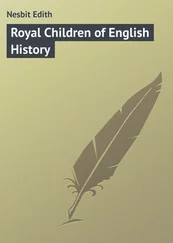Hereford George - Battles of English History
Здесь есть возможность читать онлайн «Hereford George - Battles of English History» — ознакомительный отрывок электронной книги совершенно бесплатно, а после прочтения отрывка купить полную версию. В некоторых случаях можно слушать аудио, скачать через торрент в формате fb2 и присутствует краткое содержание. Жанр: foreign_antique, foreign_prose, на английском языке. Описание произведения, (предисловие) а так же отзывы посетителей доступны на портале библиотеки ЛибКат.
- Название:Battles of English History
- Автор:
- Жанр:
- Год:неизвестен
- ISBN:нет данных
- Рейтинг книги:5 / 5. Голосов: 1
-
Избранное:Добавить в избранное
- Отзывы:
-
Ваша оценка:
- 100
- 1
- 2
- 3
- 4
- 5
Battles of English History: краткое содержание, описание и аннотация
Предлагаем к чтению аннотацию, описание, краткое содержание или предисловие (зависит от того, что написал сам автор книги «Battles of English History»). Если вы не нашли необходимую информацию о книге — напишите в комментариях, мы постараемся отыскать её.
Battles of English History — читать онлайн ознакомительный отрывок
Ниже представлен текст книги, разбитый по страницам. Система сохранения места последней прочитанной страницы, позволяет с удобством читать онлайн бесплатно книгу «Battles of English History», без необходимости каждый раз заново искать на чём Вы остановились. Поставьте закладку, и сможете в любой момент перейти на страницу, на которой закончили чтение.
Интервал:
Закладка:
There are also lessons to be learnt from battles which may roughly be called moral. Frederick the Great remarked cynically that, so far as he had observed, Providence was always on the side of the strongest battalions: and if the phrase be given sufficient width of interpretation it is perfectly true. No man ever exhibited more clearly than Frederick that strength has many elements. Discipline, endurance, mobility, courage, are all important constituents of military strength, as also is the relative excellence of armament. Soldiers who can be trusted not to lose their heads, either from eagerness or from panic, are worth far more in the long run than more excitable men. The bulldog, that never relaxes his grip but in death, is a more formidable opponent, weight for weight, than the tiger. Still more valuable is the iron tenacity which is capable of fighting after all hope is lost: it may apparently succumb, but such defeat is worth many a victory. The Spartans at Thermopylae were cut to pieces, but they taught the Persian king what Greeks could do, and prepared the way for his headlong flight when his fleet was beaten at Salamis: and the English in the Indian Mutiny enforced the same lesson. The individuals are lost to their country, but their death is worth more than many lives.
English history is in many ways well suited for illustrating the lessons that may be learnt from battles and their setting. It is continuous beyond any other national history of even moderate length. Englishmen of to-day have more in common with the axemen of Harold than Frenchmen of to-day have with the horsemen of Condé. Hence it is easier in England than elsewhere to see the significance of the changes, social and political, which accompany the military changes. The Norman feudal cavalry overcome the Saxon foot-soldiers, and the long-bow presently discomfits the lance; artillery makes mediæval walls worthless: the musket and pike supersede the bow, and the invention of the bayonet combines pike and musket in one. Later still have come enormous extension of the range of fire, both for infantry and artillery, the invention of new explosives and other engines of destruction, the effects of which are still matters of conjecture. Happily more than a generation has passed since British troops fought on a European battle-field: we have not yet tried long range artillery and machine guns, and cordite and melinite, and the other deadly things that end in – ite, except on a very small scale and against inferior races. But all the previous stages are reflected in our history of a thousand years, to go no further back than Alfred, and in some instances with very special significance.
Moreover English history is on the whole a history of success. We have suffered defeat from time to time, but the last crushing rout of a considerable army even mainly English, which history records, occurred nearly six centuries ago at the hands of our kindred the Scots, who have long since become our fellow-citizens. Why this has been the case is obvious enough; and the battle-fields point the moral very distinctly. First of all the English obtained a coherence of organisation and of feeling which entitled them to be called a nation, as that word is understood now-a-days, centuries before any other peoples of modern Europe; and the military value of that advantage is the foremost lesson of the so-called Hundred Years' War with France. Secondly, "the English don't know when they are beaten," as a great enemy said, in scorn for the stupidity of men who would fight on without perceiving that their opponents had gained tactical advantages, which to the quicker apprehension of some troops would have meant defeat. Such stupidity however is very difficult to distinguish from the dogged resolution which will not give way while life remains: and the quality, by whichever name it is called, is very apt to win. It needs no words to show that the lessons deducible from battles are more obvious to the victors; the losers have a great temptation to see only what may serve to excuse or palliate their defeat.
It may be added that in English history there is a considerable proportion of civil war, where the purely military aspect of things is not obscured by the possible or probable results of diversity of race. The conquest of India is also unique in history, for the mode in which it was achieved as well as for its extent. Thus English history gives every variety – its long continuity spreads its great battles over eight centuries, and those battles have been fought against European equals, in internal conflict, against the alien races of India. The only experience which England has not had is that of one armed nation precipitating itself on another; from this we are happily preserved by the narrow seas.
CHAPTER II
HASTINGS
It is probably needless to say that Hastings was not the first battle of English history. The Romans met with desperate resistance in more than one locality before they could complete their conquest of Britain: indeed it was not completed at all, for the wild tribes of the Scottish highlands never submitted. Details are scantily given: some of the principal scenes of conflict cannot even be identified with any certainty. But any one who desires to know how our British ancestors fought against the Romans may feel sure that the narratives given by Caesar of his battles with the Gauls afford a pretty faithful picture of the battles fought by the Celts on this side of the Channel. He may even be content with newspaper accounts of the fighting in Africa between English troops and Soudanese, or Zulus, or Matabeles. The picture of the fierce enthusiasm, the desperate courage, of untrained savages dashing themselves to pieces against the coolness of disciplined troops armed with superior weapons, is essentially the same, whether the legionaries use the pilum or the Maxim gun.
So too, after the Romans had quitted Britain, and the Angles and Saxons came pouring across the narrow seas, the contest between them and the Britons was in some localities most stubborn. The scanty but reasonably trustworthy information which we possess indicates this clearly enough: the kingdom of Wessex in particular extended itself westward very gradually and at the cost of serious battles. The localities of some of these are known, and the geographical and other reasons which led to their taking place on these fields may be fairly well inferred. But of detail there is none, though we may safely conclude that the "dim weird battle of the west" in Tennyson's Morte d'Arthur , which belongs to this age so far as it has other than ideal existence, was totally unlike, except for the fury of hand-to-hand conflict, any actual encounter between British king and heathen invaders leagued with his own rebel subjects.
Similarly when the Anglo-Saxon conquest was complete, and the new kingdoms began to contend for mastery among themselves, there were many bloody battles, some of them of real importance to the history of our island, as marking the decisive points in the severe struggle between Christian Northumbria and heathen Mercia, but little or nothing more than their names is known. Hume in a well-known passage cites with apparent approval the saying of a greater man than himself, to the effect that the battles of the Heptarchy period were of no more interest than the conflicts of kites and crows. If this be overstated from the point of view of their permanent results, it is impossible to dispute its truth relatively to the military aspect of these wars. Little as is known about them, there is every reason to believe that the art of war formed no exception to the general rudeness and ignorance of the age. 1 1 There was doubtless learning in Northumbria, but it was altogether monastic, and limited to that one kingdom.
Indeed there is positive evidence, in the fact that the first Danish invaders, who appeared before England had come to own a single ruler, found the English far their inferiors in arms, in skill, in everything but mere courage. The English had no coherent organisation, no practice in combined warfare, no defensive armour. Hence they were no match for the pirates, clad in mail shirt and iron cap, trained to rapid movement, and prompt to defend themselves behind rudely constructed fortifications when hard pressed.
Интервал:
Закладка:
Похожие книги на «Battles of English History»
Представляем Вашему вниманию похожие книги на «Battles of English History» списком для выбора. Мы отобрали схожую по названию и смыслу литературу в надежде предоставить читателям больше вариантов отыскать новые, интересные, ещё непрочитанные произведения.
Обсуждение, отзывы о книге «Battles of English History» и просто собственные мнения читателей. Оставьте ваши комментарии, напишите, что Вы думаете о произведении, его смысле или главных героях. Укажите что конкретно понравилось, а что нет, и почему Вы так считаете.












